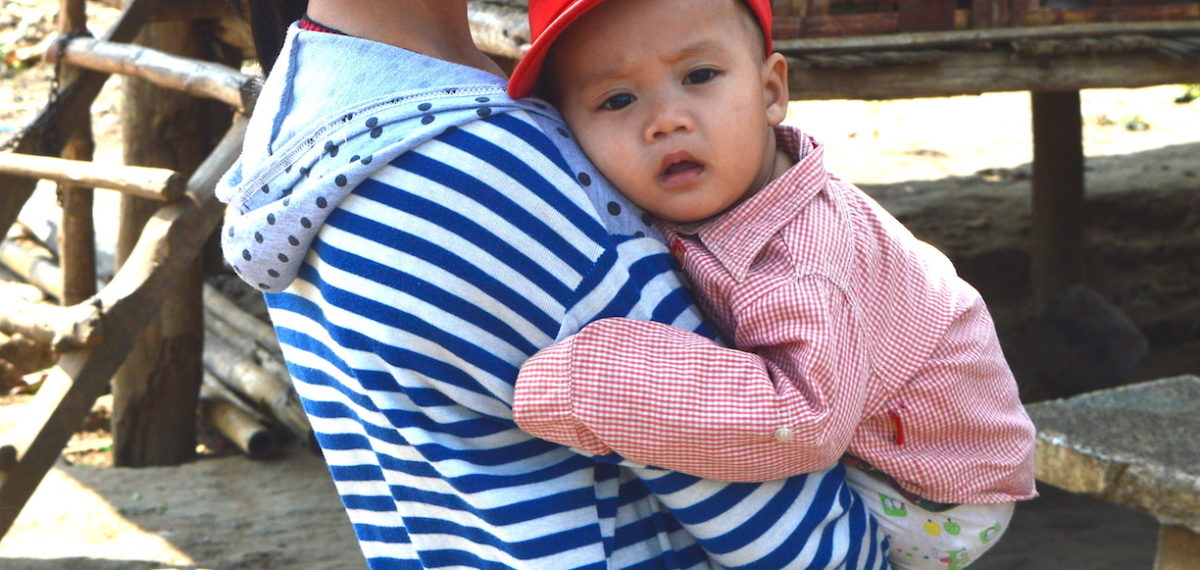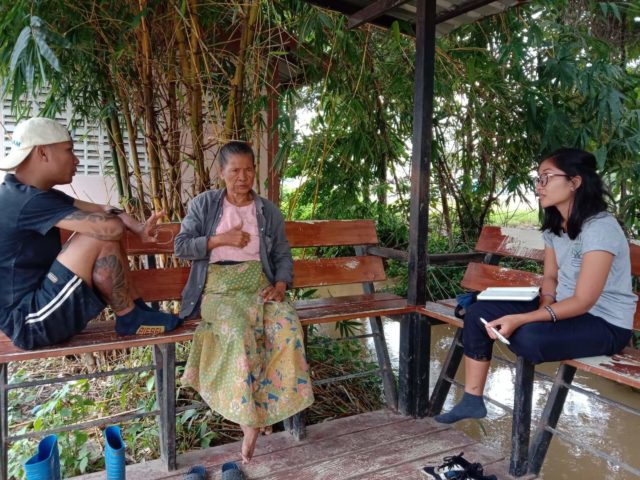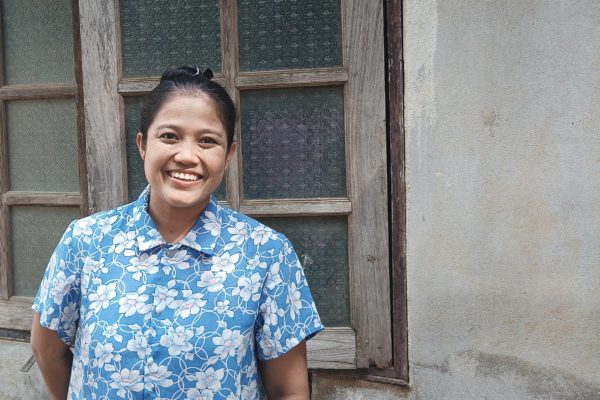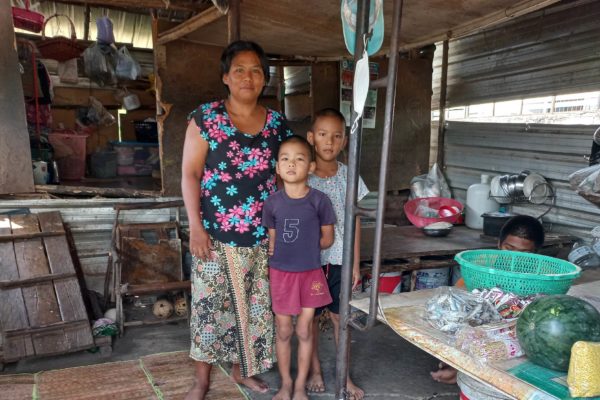"I Will Raise This Baby"

Daw Kyaing has been a client since May 2018. She gets weekly visits and nutrition packages because of her health problems. She’s in our elder care program.
We recently found out that her son, Mg Thar Lay, is not her birth child and went to learn more of the story.
“We met when he was 9 months old.” She recalled. “His mother asked me to babysit him. She said she would pay me 800baht/month. She said she would pay me once they had the money. “
The baby stayed with her most of the day – from morning until night. She carried him with her to find vegetables, get food from the market, everywhere.
She began to suspect that his father was not a blood relative. She observed, and confirmed with the neighbors, that though his mother seemed attached to him, the father was not. Instead the father beat him.
One day, the parents took the boy away, telling Daw Kyaing that they would ask their sister on Myanmar side of the border to care for him. Perhaps they couldn’t afford to pay her anymore.
“But their neighbors told me that they don’t feed the baby properly. They fed chili to the baby when they don’t have anything else. And when the baby cried because of the spiciness, the father would hit him again.” At this point in telling the story Daw Kyaing started to cry.

Daw Kyaing tells her story
“I hired a motorbike taxi to cross the border and go to where they were living.” She said. “When he saw me, he ran to me right away. So I picked him up and thought, ‘From now on I will raise this baby.'”
His mother didn’t argue! She even took Daw Kyaing into her house to give her the baby’s clothes. Daw Kyaing was so upset at how Mg Thar Lay had been treated that at first that when his mother handed her his clothes, she threw them down in anger. It was then that she saw that his mother was crying. It occurred to her that she probably was his real mother, living with a man who was not her son’s father, and she knew her baby wasn’t safe there. *
This all happened many years ago. That baby boy is now 16 years old. He’s been with Daw Kyaing ever since.
After Mg Thar Lay turned 10, people would come ask to be his guardian from time to time, especially when she was sick. Last year, his own mother, then working in a different Thai province, came and asked him to go with her.
“Why didn’t you give him to any of those people, or even his own mother?” We asked.
“I don’t trust them. I’m afraid they would actually force him to work instead of taking care of him.” she said.
Mg Thar Lay chooses to stay with her. He told his birth mother that he will stay with Daw Kyaing to take care of her and his older foster sister, who has a mental disorder, in their old age.
He has been going to school and working part time to support Daw Kyaing. He has expressed a strong desire to learn a trade, and we hope to get him that training soon.
For a time Mg Thar Lay got in with a bad crowd at school, and even ended up in jail for a short time, enough to miss the start of school semester. But that trouble seems to be behind him. Daw Kyaing says he is a good boy who is thoughtful and kind.
We asked her what she thinks is better for children, growing up in orphanages or in families. She said orphanages can keep children safe when they are small, like under 10 years old, but if children grow up with parents, they will not be away from their parents’ eyes. (This means: Good parents can take care of their children more closely and safely.)
*It’s very sad that this mother never got the support she needed to protect her child, and herself. We recognize that Daw Kyaing did the best she could with what she had.
It’s often said about Thailand that foster care is at the fringes of cultural norms compared to institutional care. Most people consider orphanages a good solution. But what we often see is that informal fostering of children already known to the caregiver is much more common than people realize. There are, of course, all sorts of things that can go wrong when this isn’t monitored. But it’s promising for the future of finding safe alternate care for children whose birth families are not safe.
Carrien is co-founder of The Charis Project, Family Education Curriculum Developer, and mom of 6.
You can get her free mini-course on Making Your Family More Resilient here.
A Young Widow’s Financial Burden


